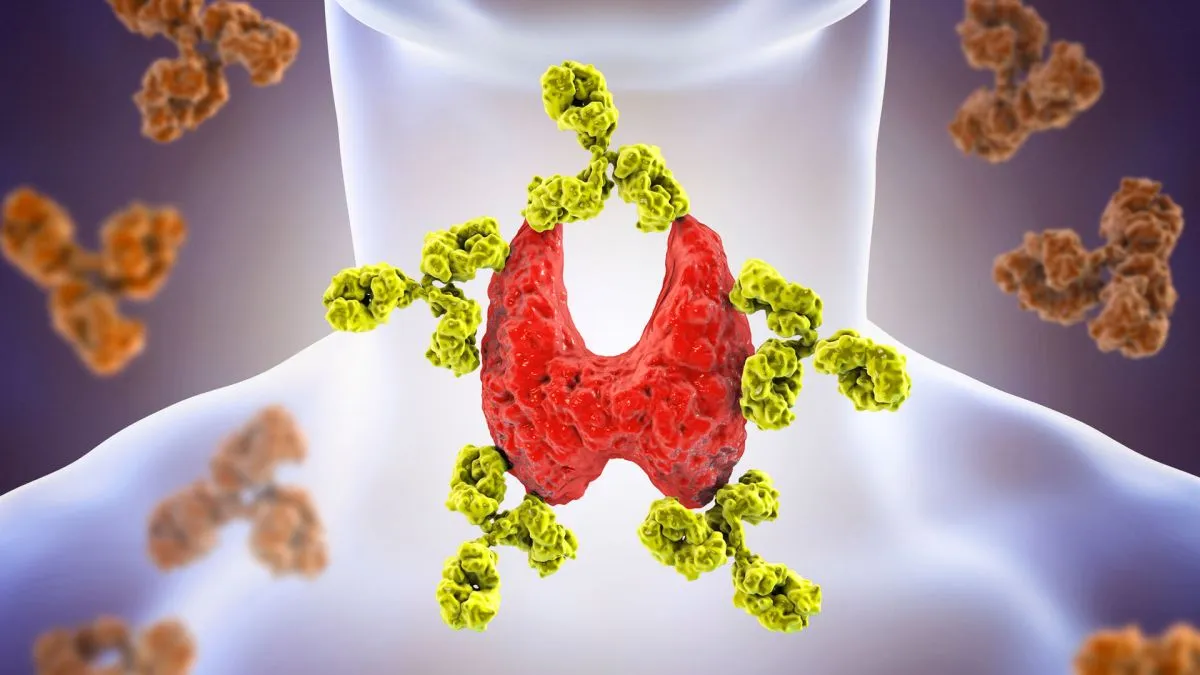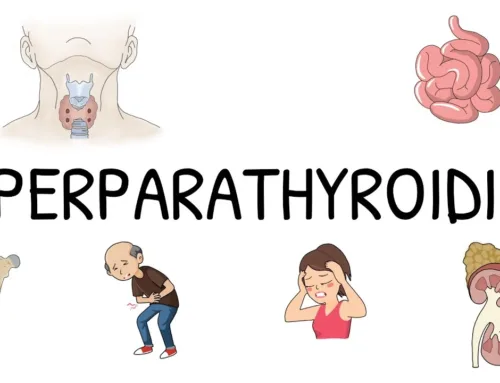Hashimoto’s disease is the most common cause of hypothyroidism. Hashimoto’s thyroiditis develops when your body makes antibodies against its own thyroid cells, leading to inflammation and damage to these cells. It can develop at any age but often occurs in people between 30 and 50 years old.

What is Hashimoto’s thyroiditis?
Hashimoto’s thyroiditis is a disease in which the body’s immune system attacks the thyroid gland, causing inflammation and damage. The thyroid gland is a small organ located in the neck that makes hormones that control metabolism. Hashimoto’s thyroiditis is the most common cause of hypothyroidism (underactive thyroid) and accounts for up to 80% of all cases of hypothyroidism worldwide, according to the National Institute of Diabetes and Digestive & Kidney Diseases (NIDDK).
What is the cause of Hashimoto’s thyroiditis?

Hashimoto’s thyroiditis is an autoimmune disease, which means that the immune system attacks the thyroid gland. The cause of Hashimoto’s disease is not yet fully understood; however, it appears to be related to genetics and environmental factors such as toxins in food or water.
Hashimoto’s disease is more common in women than men because women have higher levels of antibodies (proteins made by the body) for certain infections that can trigger an autoimmune response.
Other factors may include:
- Stress
- Smoking
- Certain medications, such as lithium or amiodarone
Who is at risk for Hashimoto’s thyroiditis?
You are at risk for Hashimoto’s thyroiditis if:
- You’re female. Women are more likely than men to develop this condition, and they tend to have an earlier onset of symptoms. A woman’s risk increases with age, though it can occur at any stage of life.
- You have a family history of thyroid disease or other autoimmune disorders such as type 1 diabetes, rheumatoid arthritis and lupus (systemic lupus erythematosus). Autoimmune diseases occur when your immune system mistakenly attacks healthy tissue in your body instead of attacking viruses or bacteria that cause infections outside the body; this causes inflammation throughout different parts of your body and may lead to serious illness if left untreated over time–and some types may even be fatal!
What are the symptoms of Hashimoto’s thyroiditis?
- Fatigue is one of the most common symptoms of Hashimoto’s thyroiditis.
- Weight gain is also a common symptom, especially in women who have developed hypothyroidism as a result of Hashimoto’s thyroiditis.
- Depression and feeling sluggish are also symptoms that can occur with this disease.
- Muscle aches and joint pain are also signs that something isn’t right with your body’s immune system–and they could be caused by Hashimoto’s thyroiditis or another autoimmune disorder like rheumatoid arthritis or lupus (systemic lupus erythematosus).
- Constipation
- Thick Skin

How is Hashimoto thyroiditis diagnosed?
- Blood test:
A blood test can be used to detect abnormal thyroid function, but it’s not always accurate.
- Ultrasound:
An ultrasound uses sound waves to create pictures of organs and tissues inside the body. The doctor places a wand on your neck, which sends out sound waves that reflect off of structures in the neck area and form images on a monitor attached to it. The doctor then looks at these images while moving various parts of your neck around so they can get different views of it. This helps them see if there are any swollen lymph nodes or other abnormalities present that might indicate Hashimoto thyroiditis or another type of cancerous growth in your thyroid gland.
- Biopsy:
In this procedure, samples are taken from both sides of an enlarged thyroid gland under local anesthesia; one sample is tested right away while another is sent away for analysis.
Also read How is Hashimoto’s thyroiditis diagnosed?
How is Hashimoto’s thyroiditis treated?
- Medication:
There are several medications that may be prescribed to treat Hashimoto’s thyroiditis. These drugs include levothyroxine, lithium carbonate and propylthiouracil (PTU). Levothyroxine is the most common drug used to treat this condition because it works by replacing the missing hormones in your body. PTUs work by blocking your body’s production of iodine, which decreases the amount of T4 released from your glandular cells into your bloodstream. Lithium carbonate is another medication that blocks iodine production by inhibiting enzymes needed for T4 synthesis.*
- Supplements:
Patients should also consider taking nutritional supplements such as selenium, vitamin E and vitamin B12.*
- Lifestyle changes:
Exercise regularly in order to maintain healthy weight levels–this can help reduce symptoms such as fatigue or muscle aches.* Diet: Eat foods rich in omega-3 fatty acids such as salmon or tuna fish once per week.* Surgery: If you have advanced stage disease (where 90%+ of your thyroid tissue has been destroyed), surgery may be an option but only after other treatments have failed
Conclusion
For most people, Hashimoto’s thyroiditis is a manageable disease that can be managed with medication. If you have symptoms of the condition and are concerned about your health, it’s important to see a doctor as soon as possible so they can diagnose and treat any issues that arise from this disease.




Leave A Comment